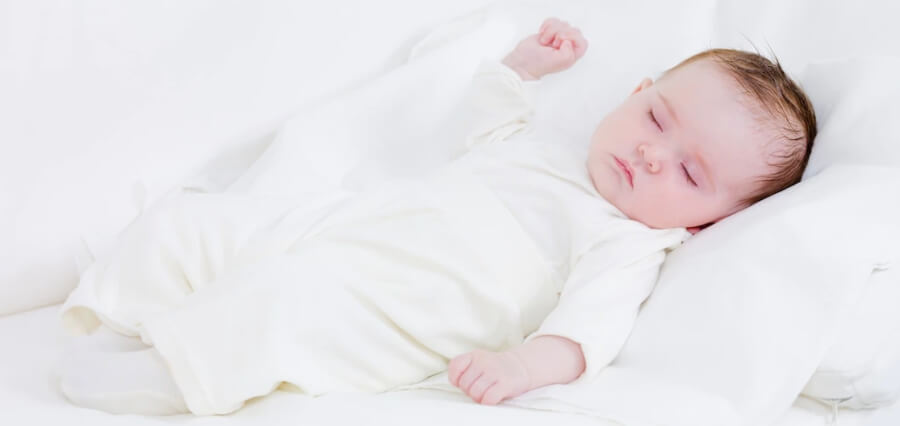If you are a new parent, it is a given that you want to ensure that your infant is safe and sound. Hence, it is not surprising that many are looking forward to setting up their nursery rooms. Stocking the essentials–such as the crib, rocking chair, and changing table–come automatically. Decorations are even a part of the preparation!
However, many are not considering air purifiers as one of the important inclusions in a baby’s room. But is this device even necessary? And more importantly, is it safe to be around your baby?
Read on to find out the answers.
What Are Air Purifiers?
Before we head to the main meat of our topic, it is essential that you are aware of what an air purifier is. Technically speaking, air purifiers are any devices that are capable of reducing the presence of pollutants in the air. Most of the time, these air purifiers are utilized in indoor settings.
Based on the information seeded by the Centers For Disease Control (CDC), the air inside buildings, such as homes and offices, tends to suffer from air pollution. In fact, the problem is more severe than in the outside setting. This is due to the presence of various pollutants in a confined space, such as household chemicals, volatile organic compounds (VOCs), food and cooking, mold, and pets.
Air purifiers are designed to remove these airborne pollutants in your home. If you choose the correct air purifier, the device will be able to protect your little ones from the potentially harmful effects of air pollution. After all, your babies are much more prone to the symptoms caused by these pollutants, so it is necessary that you will be able to deal with this problem.
If your baby is exposed to air pollution, the following repercussions could occur:
• Increased risk of developing allergies
• Increased risk of developing asthma
• Higher exposure to lung damages
• Susceptibility to lung cancer
Of course, it is essential that you only get air purifiers that are designed to provide efficiency in air purification. Look for the air purifier supplier that has a solid reputation in the industry. Most of the time, they are the ones that deliver high-quality air purification devices.
How Do Air Purifiers Work
There’s no magic behind air purifiers. They simply follow the simple yet effective filtration technology in trapping different contaminants in the air. Essentially, there are three types of filters that are installed in an air purifier. Here are they:
• HEPA Filter – The HEPA filter is the one that captures microscopic airborne contaminants, such as allergens and pathogens. It is important that the air purifier you get must have a HEPA filter to ensure that it can protect your child from allergies and respiratory illnesses.
• Activated Carbon Filter – An activated carbon filter is designed to filter VOCs, gasses, and other chemicals suspended in the air. Its specific job is to keep the air fresh, meaning that it is capable of reducing the presence of unwanted odor on your premises.
• Pre-Filter – The pre-filter works by removing large debris, such as pet hair. After all, these large particles can damage the air purifier’s operation, especially if they get clogged with the other filters.
Air purifiers that feature a three-stage filtration system incorporate the aforementioned filters. But if you want a good air purifier, it is recommended that you get those with true HEPA filters. They are the ones that can efficiently protect you and your babies from potential allergies and respiratory illnesses.
Are Air Purifiers Safe For Babies?
Notably, air purifiers are just straightforward appliances. But at the same time, you should keep in mind that not all air purifiers are constructed the same way. Hence, we only recommend that parents should only get air purifiers that use basic filtration technology. After all, they are the ones that provide the safest performance.
In the grand scheme of things, air purifiers are safe appliances. You can place them inside your nursery rooms as long as you take essential precautions. One of them is not placing the air purifier too near to your child. At the same time, make sure that you only operate the air purifier in its lowest setting, especially if you intend to use it non-stop.
The one air purifier that you should avoid is those “air purifiers” that generate ozone. Specifically, these are ozone and ionizing air purifiers. Accordingly, these air purifiers can neutralize pollutants by releasing ozone. However, one should know that ozone is a form of lung irritant. They are not safe to be inhaled, even by adults. Prolonged exposure to ozone can significantly harm your health.
In fact, the Environmental Protection Agency issued a warning against these air purifiers. Their effectiveness against air pollution isn’t proven. Hence, it is not worth acquiring them.
Conclusion
Overall, air purifiers are safe for babies. Just make sure that these air purifiers are using physical filters. Those that are using ionizing technologies are not reliable; they can even harm your little one without you knowing.
Of course, make sure that you follow the user manual of the air purifier. In this way, you will be able to utilize it as efficiently as possible.


